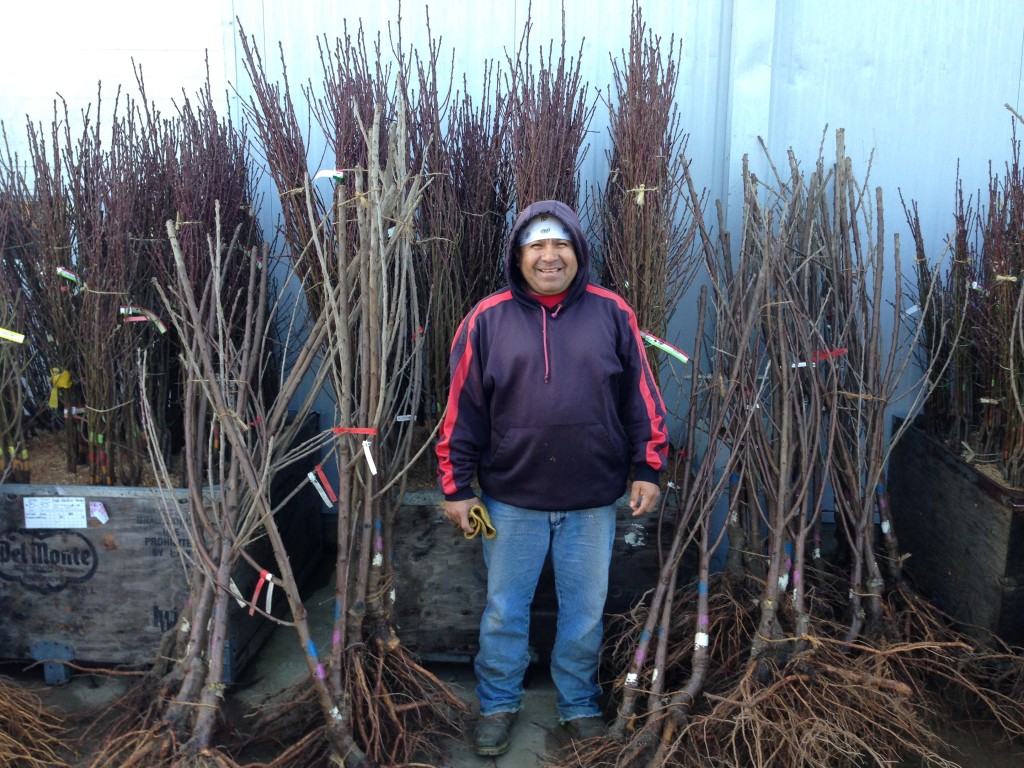The big news here at the farm is El Nino. It is not new news that it is raining, but this rain has big repercussions for our work at the farm. We’ll start by saying that we are obviously thrilled to have our ground re-saturated by mother nature, but we have necessary work to be done, and it is currently halted by soggy soil conditions.
There are three critical projects that need to be completed. The first is compost application, specifically in our apricot orchards. We need to apply the compost early enough that it is able to thrive in the soil ecosystem in our apricot orchard, in order to compete with brown rot spores that infect the flowering apricots. Before we began to add our own compost to the orchard, our apricot crop was wiped out by brown rot many years in a row, from storms just like the ones we are experiencing this year. Since the initiation of our compost program, we have been able to save our apricot crop, in spite of rain events during the bloom. We are looking forward to an expected week of dry weather, and we are hoping that by the end of this week our tractors will be able to enter the field and distribute compost where it is needed most.
The next project is winter pruning. While this is crucial for fruit quality and tree health, pruning can be postponed and completed through February and March.
The final critical piece of farm work involves the 4,000 peach trees that are waiting to go in the ground. During these cold winter months, fruit trees sit dormant; meaning no sap is flowing and growth is not occurring. The 4,000 new trees are currently dormant, packed in saw dust and watered weekly, sitting outside of our packing shed. However, the weather is warming up fast and within a few weeks, the spring burst of growth will commence. Ideally, trees are planted right before this burst occurs, but due to the muddy soil, that may not be possible. In order to stall the spring growth, we may have to put the trees into cold storage by mid-February. For ideal planting conditions, the soil needs to fall apart when shoveled. When soil is back-filled around the tree, the soil must be loose and crumbly to achieve proper contact with the roots. With our heavy, clay soils, achieving these conditions will require a lot of dry days.
As farmers, we are always doing a dance with the weather which can present blessings and challenges at the same time!

 Follow
Follow

